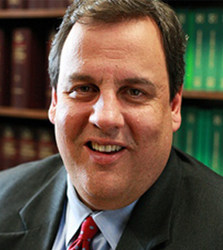
Super PACs Poised to Make a Difference
The 2016 candidates must report their fundraising totals to the Federal Election Commission by the end of today, and the independent super PACs backing them must do so as well. Many candidates have already released their totals to the press, and while some candidates are lagging in fundraising for their own campaigns, their super PACs are bringing in significant sums. Louisiana Gov. Bobby Jindal, for example, has raised a little less than $600,000 for his campaign according to a report in the Washington Examiner, but independent organizations backing his campaign have brought in nearly $8.6 million.
Another story this morning reports on what the super PAC backing New Jersey Gov. Chris Christie plans to do with its money:
Pro-Christie super PAC going up with million-dollar ad buy in New Hampshire
A super PAC supporting the presidential candidacy of New Jersey Gov. Chris Christie said Tuesday it has raised $11 million since its launch in February and is launching a million-dollar ad campaign in New Hampshire starting July 20.
The group, America Leads, has also reserved $2.8 million in air time from Nov. 16 to Feb. 9 in New Hampshire, a state that will be vital to Mr. Christie’s presidential aspirations.…
The initial television and digital buy will total $1.1 million, and the group is placing its first TV buy beginning July 20 in the Manchester and Boston markets.
Jindal and Christie are currently polling toward the back and middle of the GOP pack, respectively, but it’s easy to see how these independent groups could provide a boost to their favored candidates, lifting their name recognition and providing a positive message that resonates with voters.
Apparently it’s also easy for some to see how super PACs could damage the eventual GOP nominee. Politico reports on growing concerns among some that independent groups might chose to turn on frontrunners, hoping that by taking them down it creates an opening for their own pick:
Concerns are mounting among top donors and party elites that an influx of huge checks into the GOP primary will hurt the party’s chances of retaking the White House. Long-shot candidates propped up by super PACs and other big-money groups will be able to linger for months throwing damaging barbs at establishment favorites who offer a better chance of victory, the thinking goes.
Already, big-money groups have raised about $86 million to support a handful of second- and third-tier candidates — Govs. Chris Christie of New Jersey and John Kasich of Ohio, Texas Sen. Ted Cruz, former CEO Carly Fiorina and former Govs. Rick Perry of Texas and Mike Huckabee of Arkansas…
“A super PAC for a broadly successful candidate makes them doubly formidable. A super PAC for a marginal candidate keeps them alive. And that’s what’s different now,” said former President George W. Bush press secretary Ari Fleischer.…
Those concerned about the potential damage of super PACs draw their lesson from the 2012 campaign:
[P]arty leaders’ hands are tied when it comes to limiting the ability of mega-donors to subsidize fringe campaigns, including by attacking more viable rivals. And conditions appear ripe for super PACs to make the 2012 GOP primary — the first of the Citizens United era — look like child’s play by comparison.
In that race, Las Vegas casino billionaire [Sheldon Adelson] and Wyoming mutual fund pioneer Foster Friess almost single-handedly subsidized the long-shot GOP primary campaigns of Newt Gingrich and Rick Santorum, respectively, despite otherwise lackluster campaign organizations and fundraising. The super PAC supporting Gingrich in particular, which was backed by more than $20 million from Adelson’s family, spent heavily on ads attacking the party favorite — and eventual nominee — Mitt Romney as a heartless corporate raider by highlighting his time at the helm of the private equity firm Bain Capital. Republicans bemoaned the attacks, which played into the hands of Democrats. They eagerly picked up the theme when a damaged Romney, his super PAC and campaign coffers depleted from fending off the attacks, limped into the general election against President Barack Obama...
There’s probably an element of truth to the concerns about the 2012 experience being repeated in 2016, although it’s hard to believe the Democratic team wouldn’t have developed the same theme against Romney’s private equity background if the super PACs backing Gingrich hadn’t done it first.
On the Democratic side, there isn’t any indication yet that super PACs will play a noticeable role in the nomination process, but with so many candidates on the Republican side trying to just get into the first or even second tier in the polls, super PACs are likely to play a big role in helping to shape the GOP battle.



